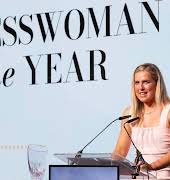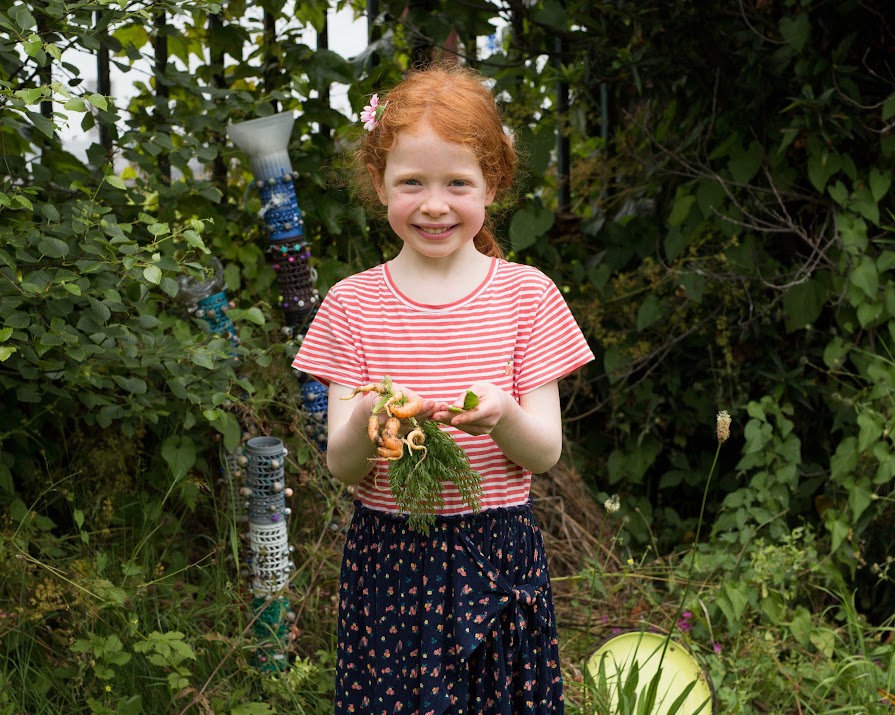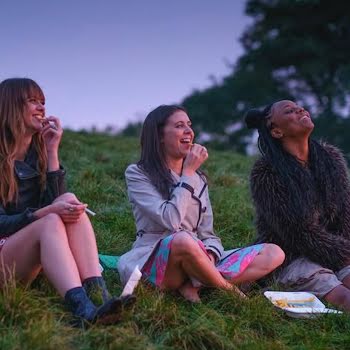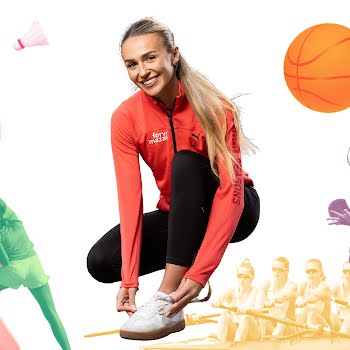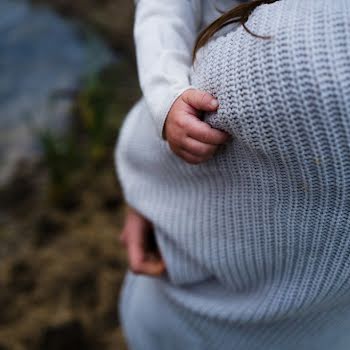
By IMAGE
Our school children are missing out on learning the vital life skill of how to cook and feed themselves well. Dynamic chef, cookery writer and food campaigner Michelle Darmody is determined to change this. Read on to find out how you can help…
Digging into the earth with a group of junior infants, levering the fork to reveal the smooth pale potatoes underneath, elicits screams of excitement. Watching the school children clamber to pick out the potatoes, counting them as they drop them into their buckets, shows how participating in creating our food influences how we see it and react to it.
The teacher cooked the potatoes on a stove in the classroom and every one of them was eaten with glee. I have been involved in food education projects throughout my adult life; it has given me a sense of how important it is to instil this enjoyment and pleasure in eating at a young age.

Chef, cookery writer and food campaigner Michelle Darmody believes educating children about how to eat and where food comes from is essential for their future wellbeing
Food is emotive and complicated. Take the simple process of sauteing onions, garlic and carrots – it is the basis for a great many dishes, a first step in learning the foundations of cooking. Across the world, cultures use very different words to describe this combination: mirepoix, sofrito, battuto, or the “holy trinity”. There are tweaks and differences, but the foundation is the same.
I find it fascinating that this simple recipe encapsulates place and tradition, but this also shows complexity. Even the simplest of recipes are imbued with identity, culture and history.
Primary school
Cooking skills are the foundation for knowing how to eat well. It is vital to have the skills to turn raw ingredients into nutritious meals. However, we also need an expansive approach to food, where children learn how food impacts not only their bodies and the bodies of others, but how it impacts culture, economy and the environment.
“We need to look at ways to embed food education that are manageable and realistic, but this doesn’t mean we cannot be ambitious.”
Within the primary school system, we teach language with which to communicate, maths with which to problem solve, yet we do not teach the very crucial skills associated with making food. Traditionally, home was the place where children built the skills to taste, measure and cook the foods that will feed them later in life, but today that is not happening, in the same way, it has in previous generations.
Schools are the next logical place, but as any teacher will explain, the school day is already very busy.
That is why we need to look at ways to embed food education that are manageable and realistic, but this doesn’t mean we cannot be ambitious.

Learning to grow and harvest food at St Vincent de Paul girls’ school in Dublin
Food Dudes is a government-funded, rewards-based food intervention, which encourages children to eat fruit and vegetables. It has its failings, using pre-packaged portions of – mainly imported – produce. The programme could be re-examined to focus on tactile enjoyment and provenance, as well as being a conduit for increasing basic skills.
Sapere method
Other countries are expanding their food education with great effect. The Sapere method is becoming standard practice across Europe, and it allows children to enthusiastically explore food with each of their five senses.
Children being resistant to new tastes is a barrier when a parent is shopping on a budget; buying something a child has not tasted might likely go to waste. Methods like Sapere allow the child to taste, but also to explore and enjoy; it encourages adventure to inspire young people to continue taking pleasure in food.
There are currently numerous food education projects throughout Ireland that address different aspects of food education. These are elective and dependant on the principal or teacher taking an interest. GIY in Waterford has a variety of nationwide initiatives. Michael Kelly, the CEO, is pushing for changes in food education. “There are many valuable programmes developed by organisations like ourselves. Given the scale of the problems around health and sustainability, we need an urgent step-change response that embeds these programmes into the education system.”
Another initiative by Slow Food in East Cork, where Darina Allen has been advocating for a similar approach to Kelly’s, supports gardens and chicken coops in local primary schools. They emphasise not only the importance of the food, but of being outside and exploring in nature.
“Food education is critical. Some of the more obvious elements to consider from the environmental perspective include food miles, packaging and food waste.”
An Taisce Green-Schools programme has been running in Ireland for 23 years. Their flag system allows the whole school to come together to work on topics such as biodiversity or recycling. An Taisce is beginning to focus on global food systems and looking at how food is grown.
Children are very engaged with these issues, particularly after the recent environmental school strikes. According to biodiversity officer Meabh Boylan, “Food education is critical. Some of the more obvious elements to consider from the environmental perspective include food miles, packaging and food waste. The benefits of food education, however, go far beyond reducing the environmental impact.
“Proven health benefits include more time spent outdoors, higher levels of physical activity, increased social engagement, better mental health, a diet richer in fresh produce, more adventurous eating, and an increased understanding of nutrition.”

Vincent de Paul girls’ school in Marino, Dublin is participating in the Green Schools biodiversity and food flag, teaching children how to grow and harvest food so that they may learn to eat healthily well into the future
Airfield Trust in Dundrum, a fully working farm within Dublin city, has an excellent educational programme and training facility for teachers. Kirstie McAdoo, who is head of education, says, “We have to explore (young people’s) ‘knowledge black holes’. We aim to work with them around their understanding of what food is and how it contributes to their growth and wellbeing; how the choices they make now have an effect on their bodies in later life.”
Navigating the conversations about food online can be difficult, both in advertising and on social media. Safefood has created a resource for teachers called MediaWise, a media literacy pack which helps them to guide children.
In-house kitchen
In St Ultan’s in Cherry Orchard, Dublin 10, there is an in-house kitchen which feeds 400 children a hot meal each day. Teacher Gary Jones feels that more food education would be beneficial. His suggestion is to approach it in a similar manner to ICT, which is an acronym for information and communication technologies.

This is not on the curriculum per se, but when the teachers are planning, they need to they can incorporate it into their lessons. He feels food could be approached in the same way, by following the natural linkages, to create experiential classes that integrate food with a variety of subjects. He also mentions that being allowed the necessary time to eat a meal within the school day is important for the students. We could teach children to eat and enjoy nutritious and delicious food within the Irish school system, in the same way we teach them to read or write.
Literacy
We do not question whether a child should be literate in the English language, yet food literacy is just as complicated, and there are arguments about where best to invest money when children may be underfed. It is unconscionable that Irish school children are attending school hungry.
The Department of Social Protection is attempting to remedy this. Food education is not a panacea, but it can be part of a long-term strategy that, if done correctly, will be a valuable component in helping to address some of the current diet-related health issues facing the next generation. Research has shown that equipping children to have an interest and enjoyment in food at an early age can provide them with the vital skills and motivation needed to stay healthy.
Food is embedded into our lives; it is time to further embed it into the school curriculum. There is an opportunity to work with teachers and see how this can be achieved. And by taking inspiration from initiatives that are already in place, we can create a food education that not only focuses on the biological aspect of what we eat, but looks at food through culture, economy, environment and enjoyment.
As Anna Walshe from the National Council for Curriculum and Assessment stated at a recent food education event, “Food is not a subject, it’s every subject.”
Photography by Melanie Mullan.

This article originally appeared in the September 2019 issue of IMAGE Magazine.





